How to Make a Tincture for Anxiety
Learn how to make a tincture for anxiety to curb feelings of worry and anxiousness. Chamomile, lemon balm, Holy Basil, and cinnamon are some of the best herbs for anxiety.
— Permacrafters gets commissions for purchases made through links in this post. We encourage you to prioritize secondhand goods whenever possible. —
Anxiety can take a serious toll on our lives. Depending on its severity, it can result in panic attacks, chest pain, or even social isolation. When anxiety becomes chronic, it can interfere with our sleep, our work, and our relationships. It can even lead to a compromised immune system and depression.
Herbal medicine can support you in decreasing feelings of anxiety. However, anxiety treatment still requires a holistic approach. This can include incorporating practices such as meditation, exercise, quality sleep, and writing down your worries.
WARNING: Before learning how to make a tincture for anxiety, check with your doctor to see whether this tincture for anxiety is suited for you. This anxiety tincture is not recommended if you have a difficult relationship to alcohol, are pregnant, have thyroid problems, or are a man trying to conceive. Read our Health Disclaimer here.
Best Herbs for Anxiety in Our Tincture for Anxiety
The herbal tincture for anxiety we are making today is made from chamomile flowers, lemon balm, holy basil, and cinnamon bark. Before learning how to make a tincture for anxiety, let’s learn about these medicinal herbs!
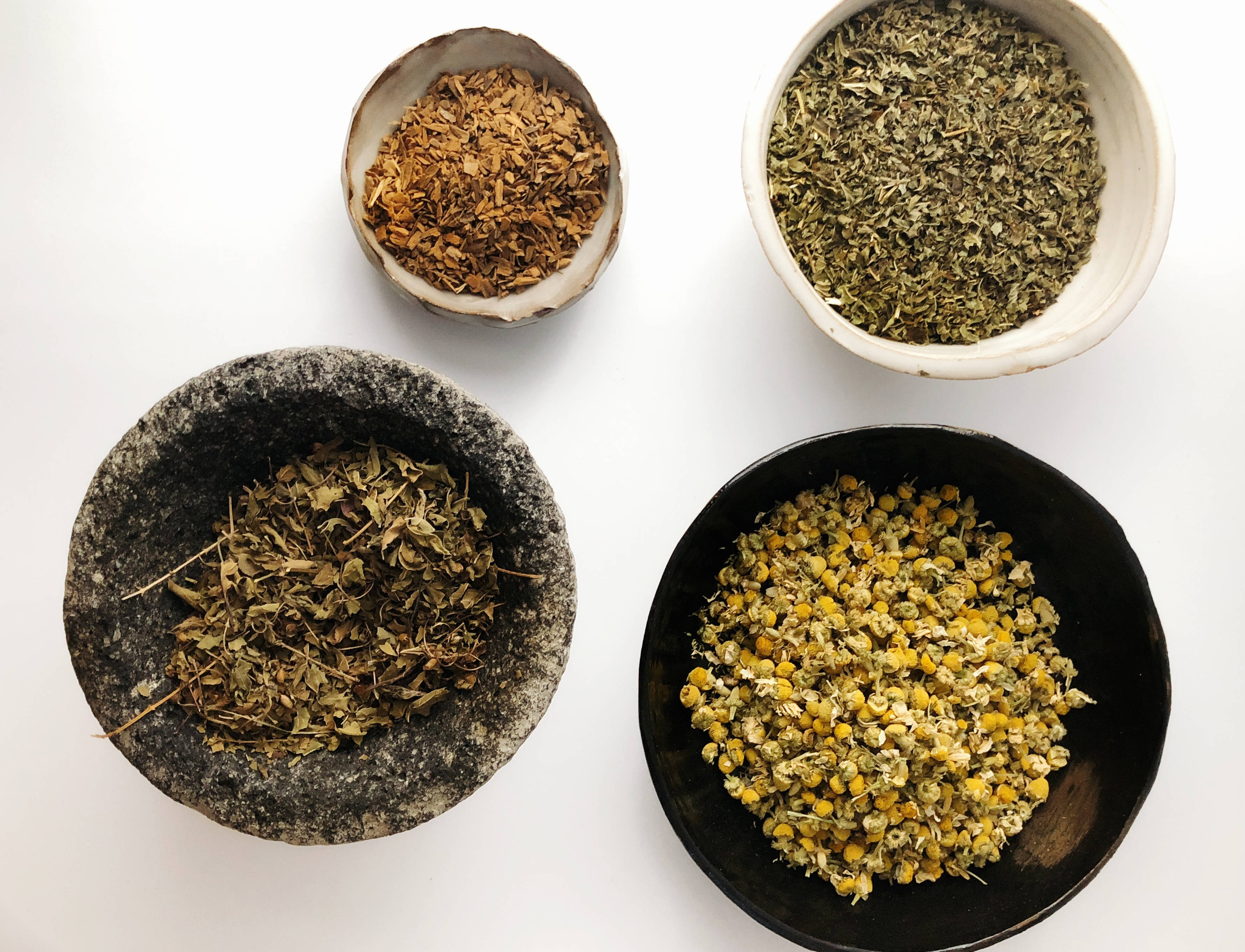
Chamomile
Chamomile (Matricaria recutita) is a nervine, which calms the nerves and eases stress. A study suggests that chamomile is both an anxiolytic and an antidepressant. It can be taken as a yummy tea, an herbal tincture for anxiety, or even used as a massage oil. In fact, receiving massages is a great way to reduce stress.
Check first with your doctor: Chamomile is generally considered safe. However, some people are allergic to chamomile and can develop either internal problems or topical reactions like itchy eyes, ears, a scratchy throat, or a runny nose.
Where to buy: Organic Chamomile Flower Whole
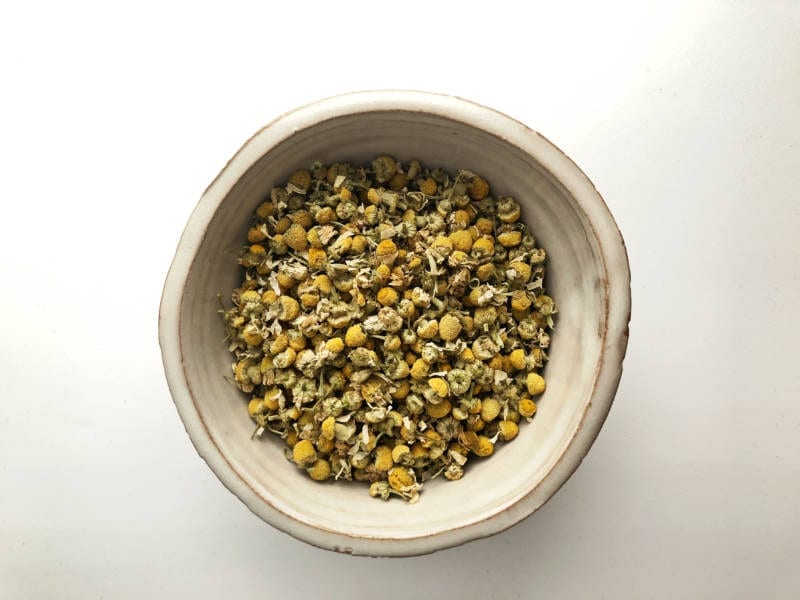
Lemon Balm
Lemon balm (Melissa officinalis) is a calming agent and a wonderfully delicious herb that can be taken as a tea, an herbal tincture for anxiety, or added to your meals. Similarly to chamomile, it’s a nervine, used for nervous disorders and helpful for anxiety treatment.
It’s one of the best herbs for anxiety and has been found to have anxiolytic effects, with rosmarinic acid being one of the active components shown to improve mood and cognitive performance. One study found that people who took lemon balm reported increased calmness. Moreover, another study found that lemon balm combined with Valerian reduced anxiety. Lemon balm is also rich in citral and citronellal, which are volatile oils shown to calm the nervous system.
Check first with your doctor: Lemon balm inhibits thyroid activity. Therefore, for those with hypothyroidism or low thyroid activity, you should certainly run this herb by your doctor first prior to taking this tincture for anxiety.
Where to buy: Organic Lemon Balm Leaf C/S
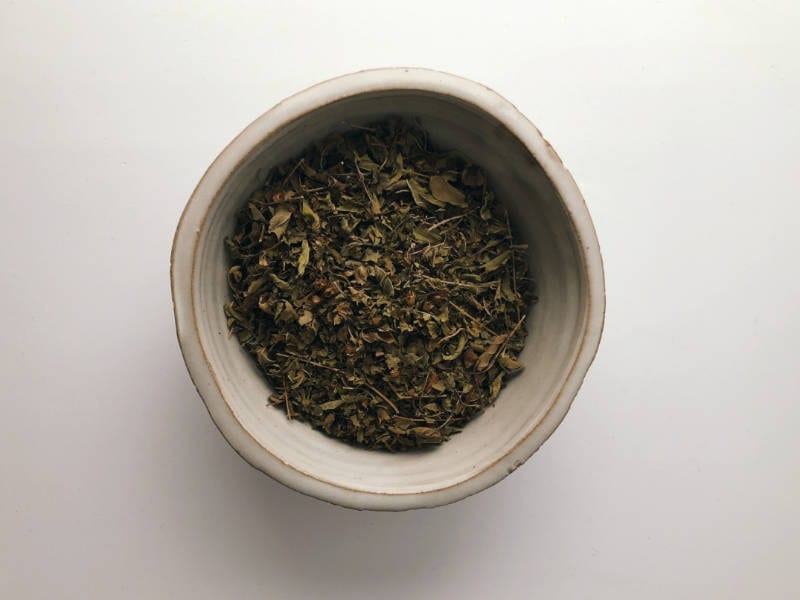
Holy Basil (Tulsi)
Among the best herbs for anxiety, Holy Basil (Ocimum tenuiflorum or ocimum sanctum) is native to India and is well-known for its calming and revitalizing effects. It can be taken as tea, vinegar, tincture, or eaten as a culinary herb.
A Nepalese study found that holy basil significantly helped lessen anxiety in individuals suffering from generalized anxiety disorder, pointing to holy basil potentially being an effective anxiolytic. Furthermore, another study in India on individuals who were given holy basil extract found their stress symptoms to be improved, including forgetfulness, poor sleep, fatigue, and even recently developed sexual problems linked to anxiety.
Check with your doctor first: Holy Basil is a uterine stimulant, so do not take if pregnant. It can also decrease sperm count, thin blood, lower glucose in the blood, and interact with other medication.
Where to buy: Organic Holy Basil Leaf C/S (Rama)
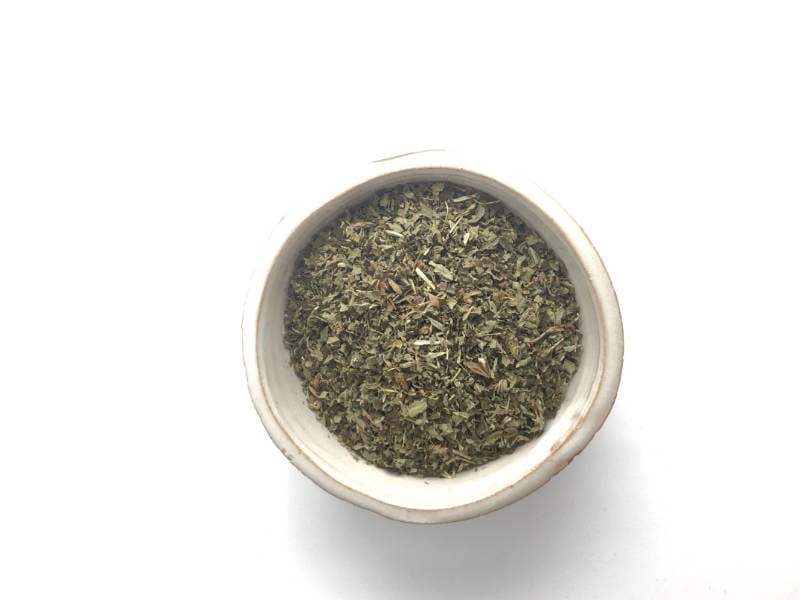
Ceylon Cinnamon
Ceylon Cinnamon (cinnamomum verum) comes from the bark of trees native to India and Sri Lanka. Cinnamon is well known to boost vitality and can be used as anxiety treatment.
One study on mice found that cinnamon essential oil helped improve symptoms of anxiety and depression. Researchers hypothesize that the anxiolytic effects may be due to cinnamon’s antioxidant and anti-inflammatory properties. Cinnamon has also traditionally been used to stabilize blood sugar levels. As a result, people suffering from low blood sugar often suffer from anxiety. Using cinnamon can help reduce stabilize blood sugar, and in turn, reduce anxiety.
Check with your doctor first: Cinnamon in this herbal tincture for anxiety is a uterine stimulant, so do not consume in large amounts if pregnant.
Where to buy: Ceylon Cinnamon
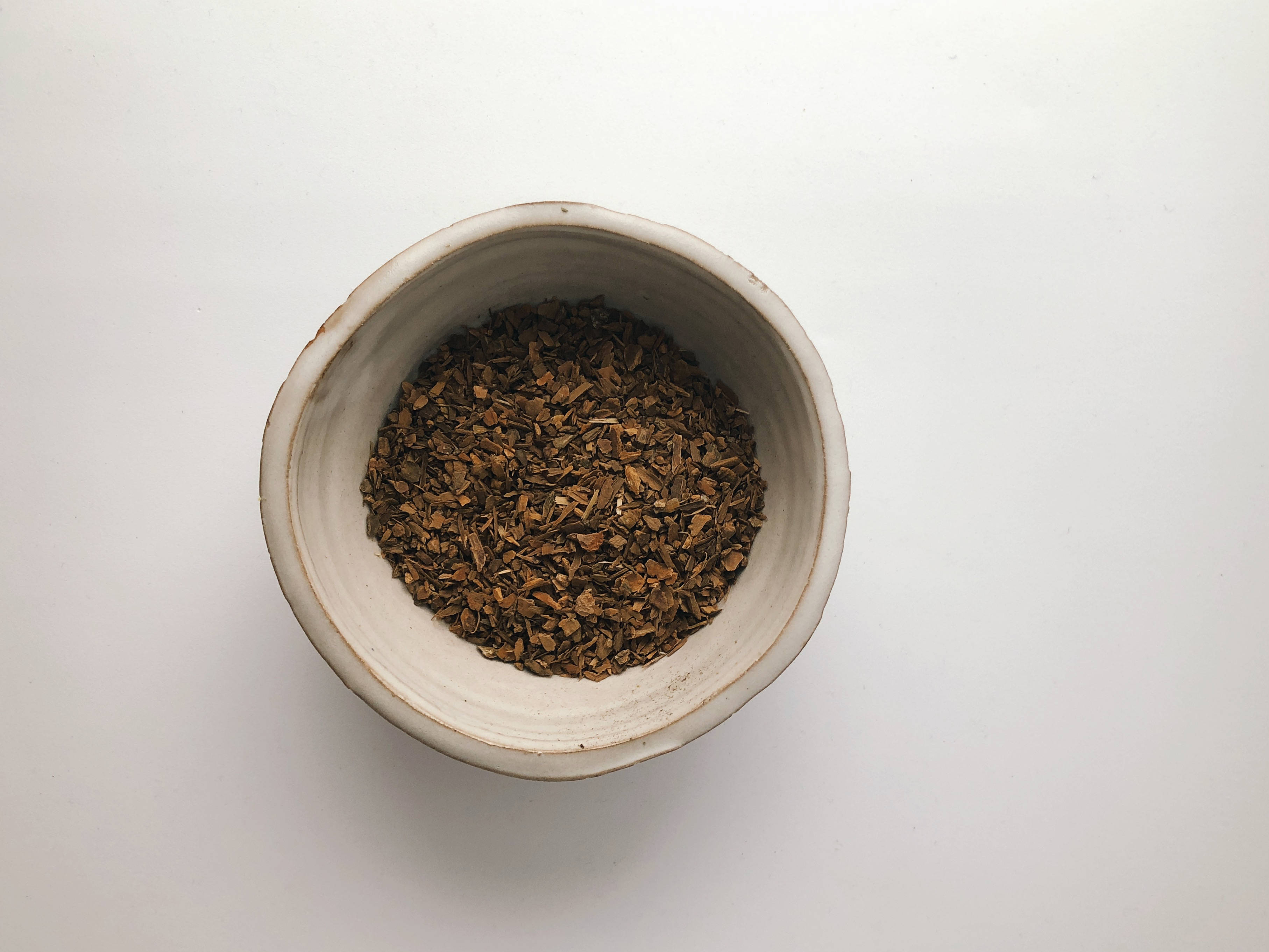
These four herbs for anxiety may not be suited to you (especially if you are pregnant, have thyroid issues, or are a man trying to conceive!). Other medicinal herbs to consider adding to your herbal tincture for anxiety – and to run by your doctor!! – include Ashwaganda, Shankpushpi, Rhodiola (rosea), Valerian, lemongrass, Schisandra fruit, Jasmine, and – not an herb, but a mushroom – reishi.
How to Make a Tincture for Anxiety
Total Time: 6 weeks
Preparation Time: 10 minutes, twice
Maceration Time: 6 weeks
Ingredients:
- 0.5oz chamomile flowers (by weight)
- 0.5oz lemon balm (by weight)
- 0.5oz holy basil (by weight)
- 0.5oz cinnamon (by weight)
- 100 proof vodka (50% alcohol)
Materials:
- Blender
- 1 quart-size jar
- Stainless Steel Wide-Mouth Funnel (fits quart-size jar)
- Nut milk bag
- Potato ricer
- Amber tincture bottle
- Mini metallic funnel (fits your tincture bottle)
- 1 amber glass bottle
How to Make A Tincture for Anxiety Step-by-Step:
- Check with your doctor to determine whether these herbs + alcohol are safe for you.
- Blend the herbs and transfer them to a large glass sealable jar
- Cover the herbs with 100-proof vodka
- Let sit for 6 weeks in a dark spot and shake daily (or when you remember!)
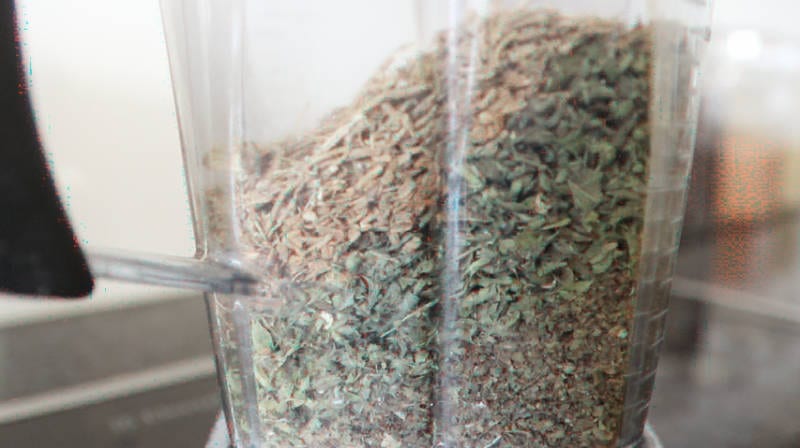
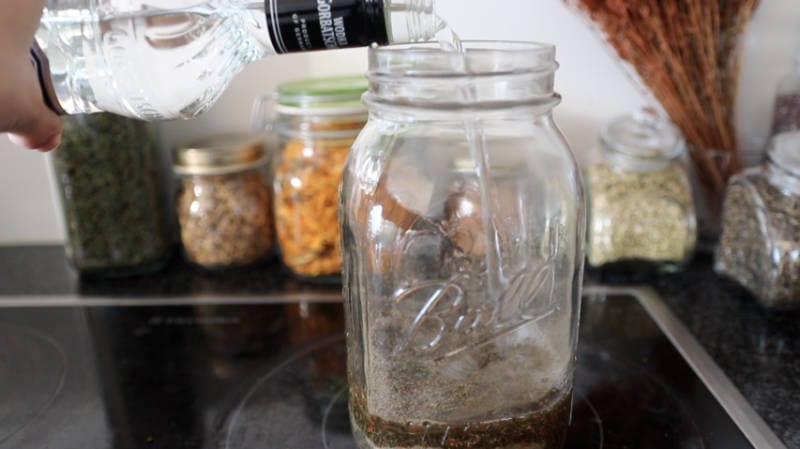
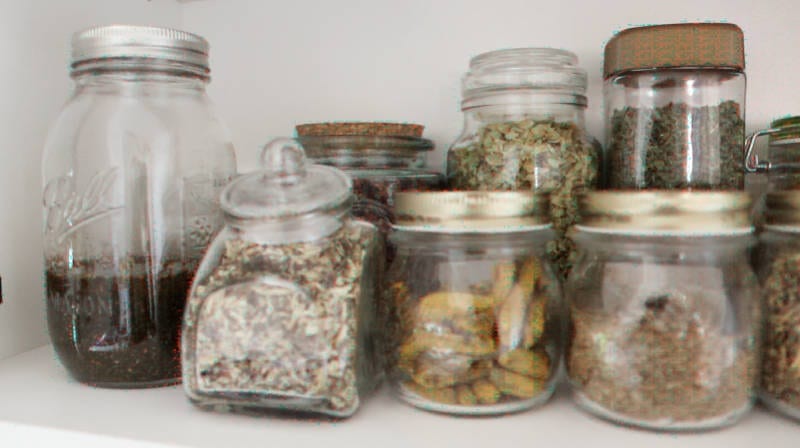
- Strain. Place the nut bag into the glass jar, and the potato ricer over the nut bag. Transfer the liquid and herbs into the potato ricer so that it dribbles down into the nut bag and into the amber jar. Squeeze the potato ricer to extract the tincture from the herbs.
- Compost the leftover herbs.
- Transfer some of your tincture from your glass jar to a tincture bottle using the metallic funnel.
- Label your bottle.
To take: Determine dosage with your doctor. I personally take up to 3 dropperfulls per day as needed.
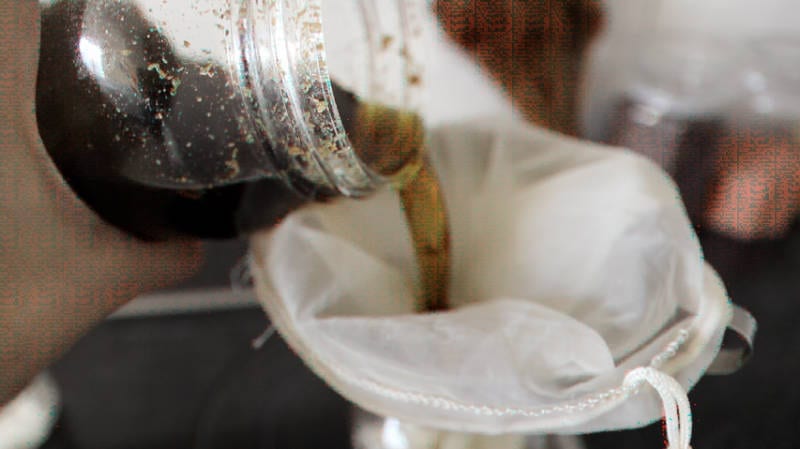
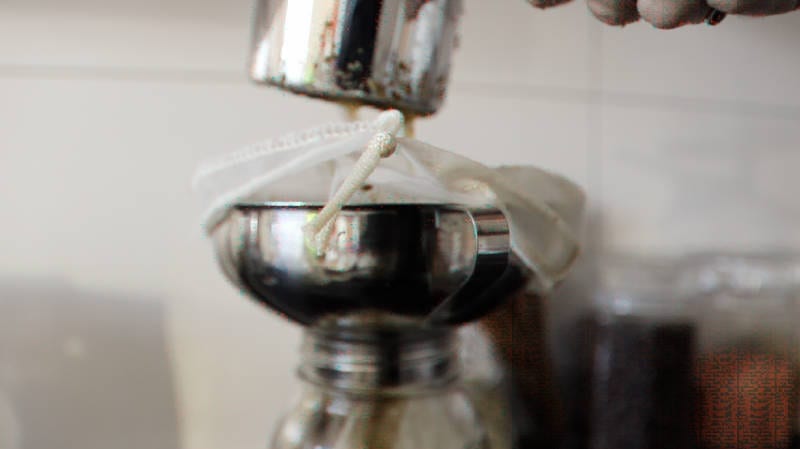
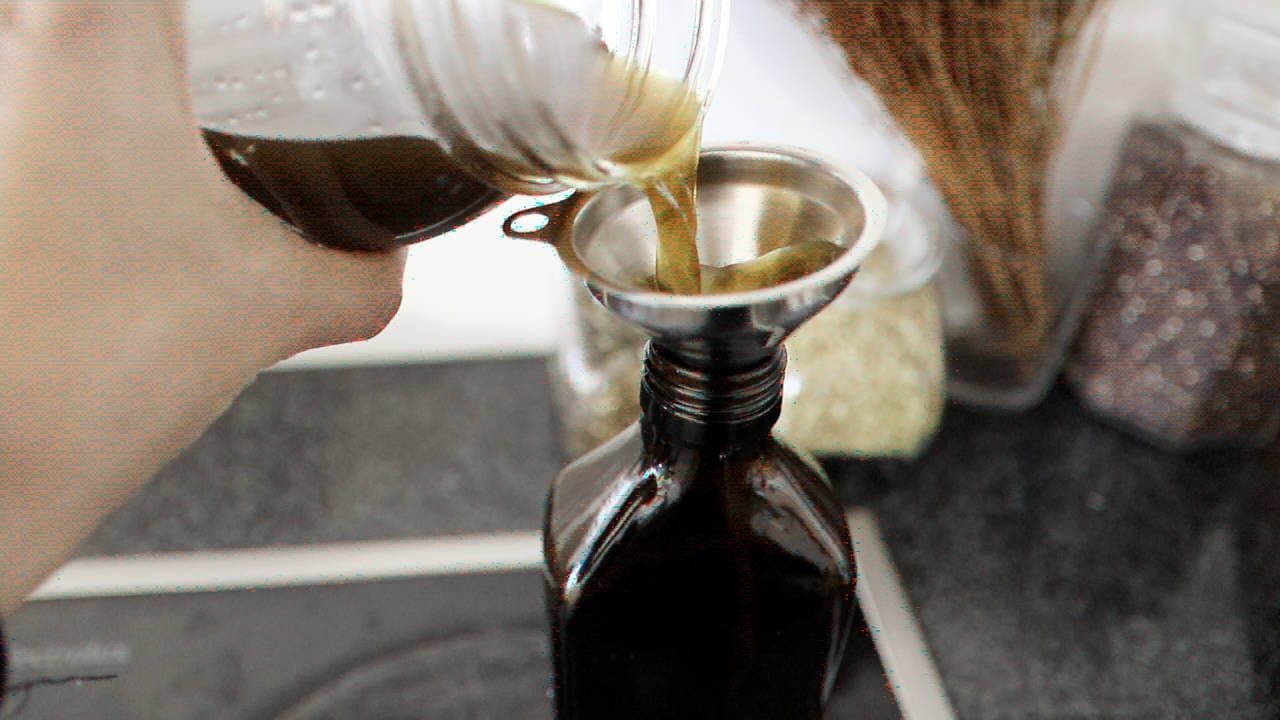
Now that you know how to make a tincture for anxiety, will you be testing out these best herbs for anxiety? Are there other natural remedies or any herbal tincture for anxiety that you use to support you in relieving anxiety? Let us know in the comments below!
If you enjoyed this post, you might enjoy learning how to make an herb press from salvaged materials or discover our wellness section for more home remedies.
If you wish to learn more about prioritizing your health while still minimizing waste, check out our free intro to zero waste living class!
Stay healthy, friends!
Warmly,
Christelle
By commenting you accept our Privacy Policy.
Copyright © 2017 Permacrafters. All rights reserved. || Privacy Policy || Website Terms of Use || Health Disclaimer || Student Dismissal Policy ||










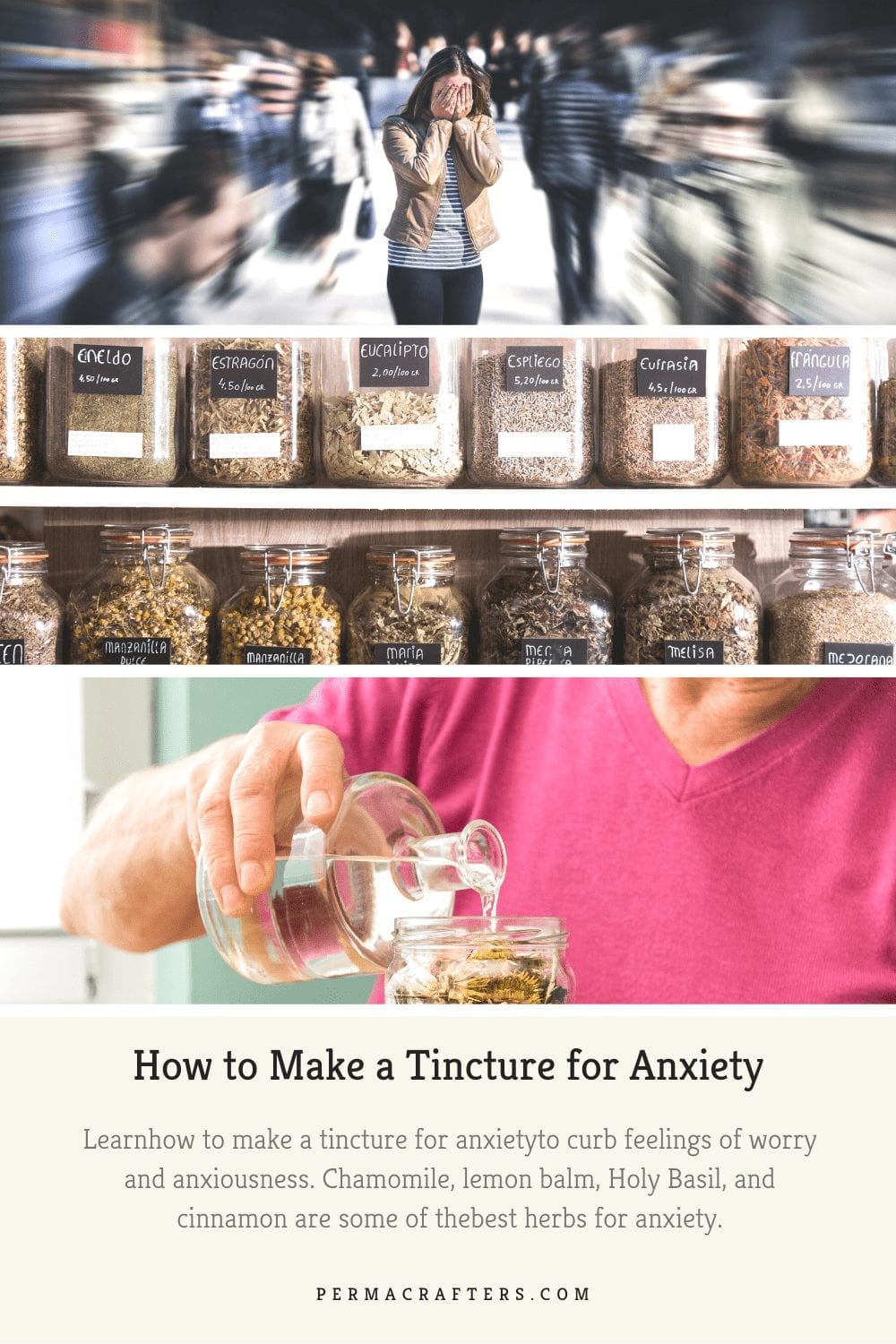
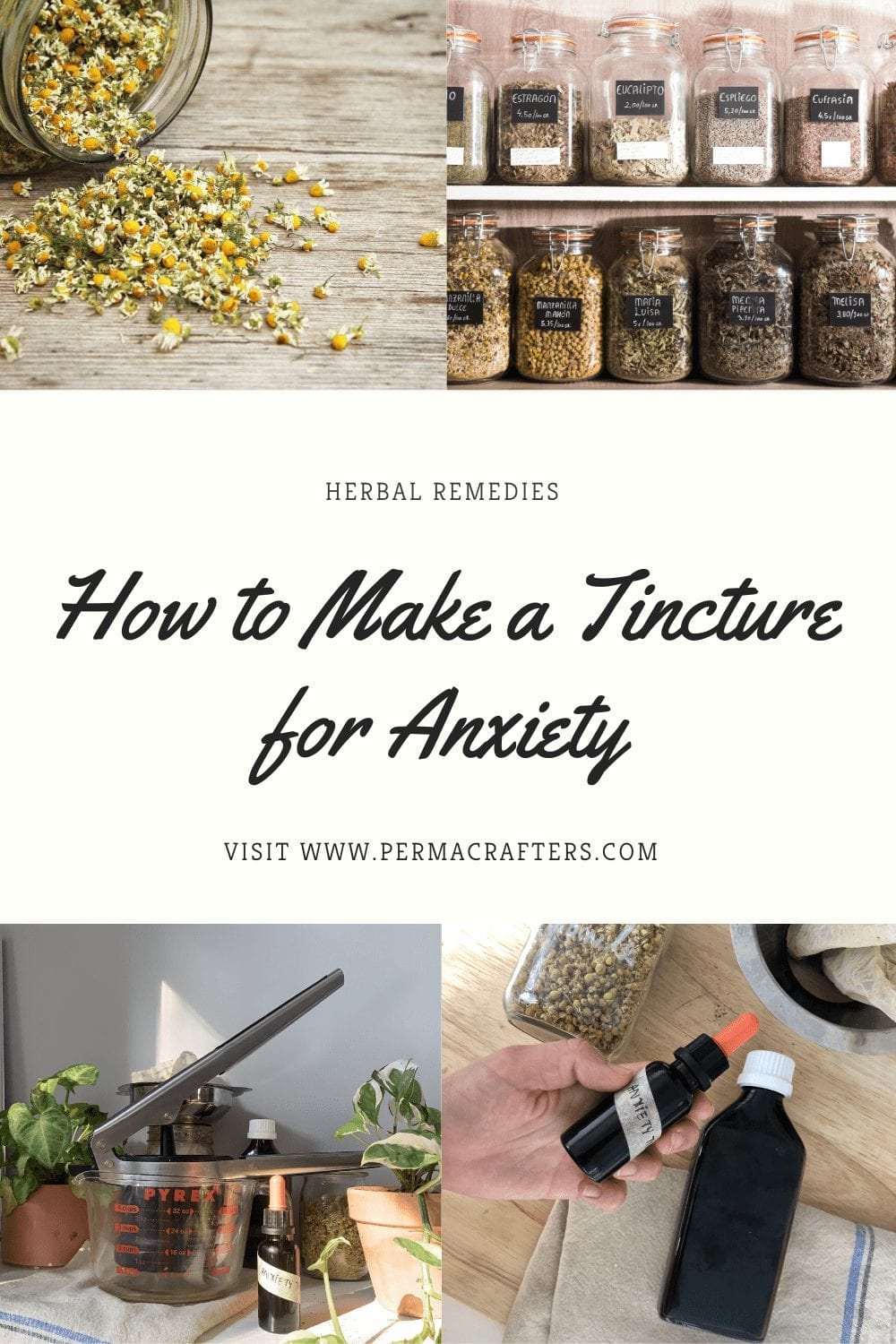
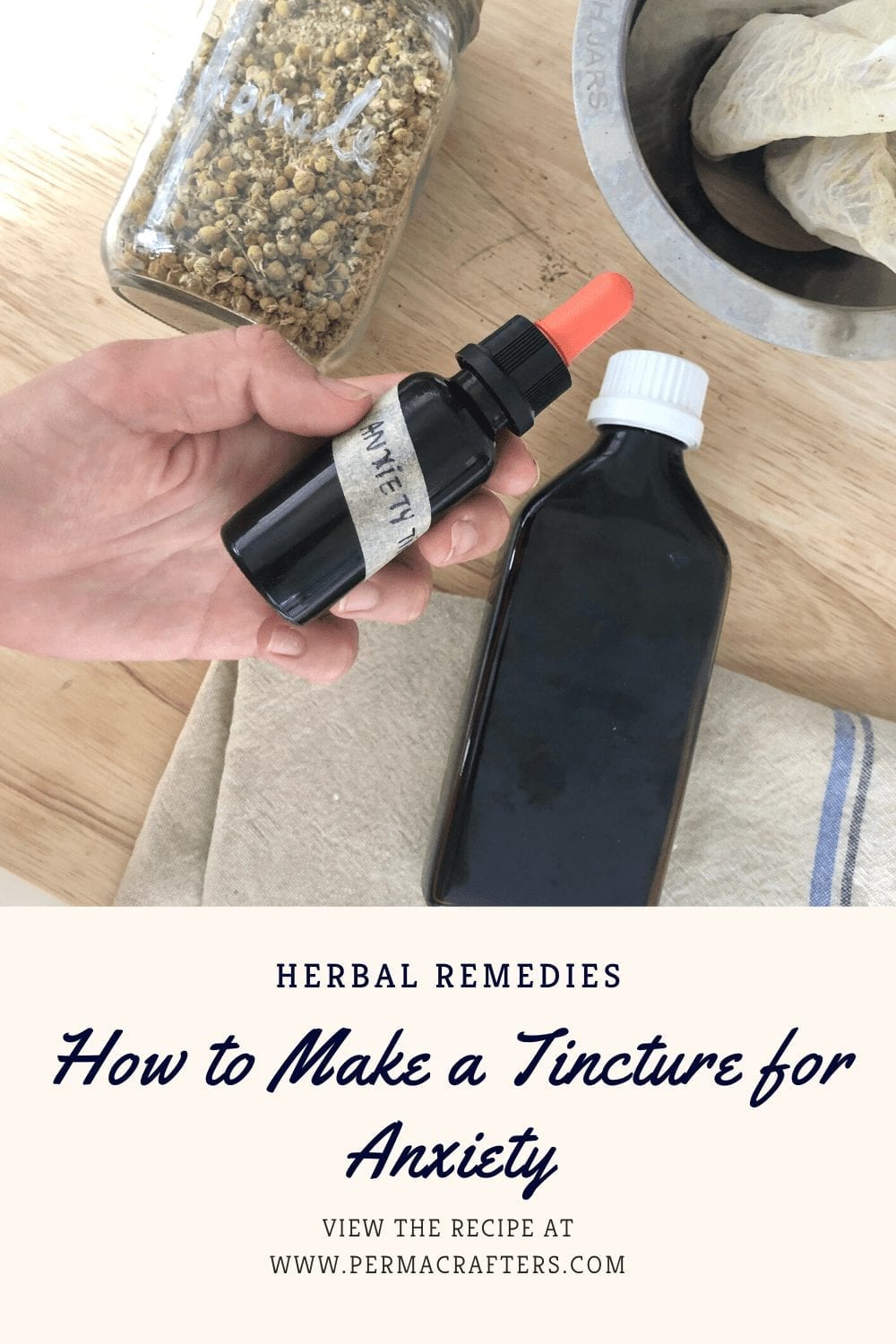
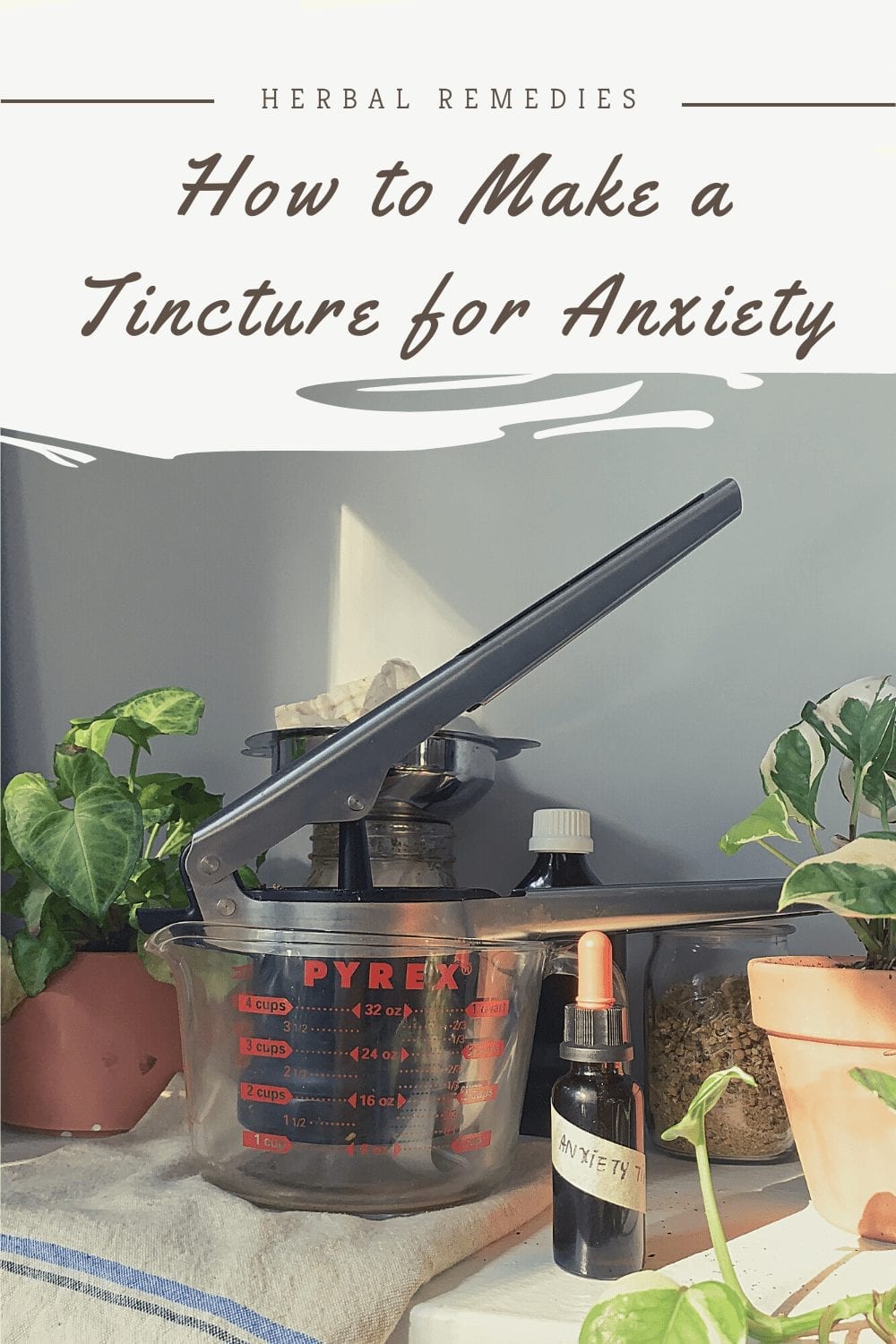
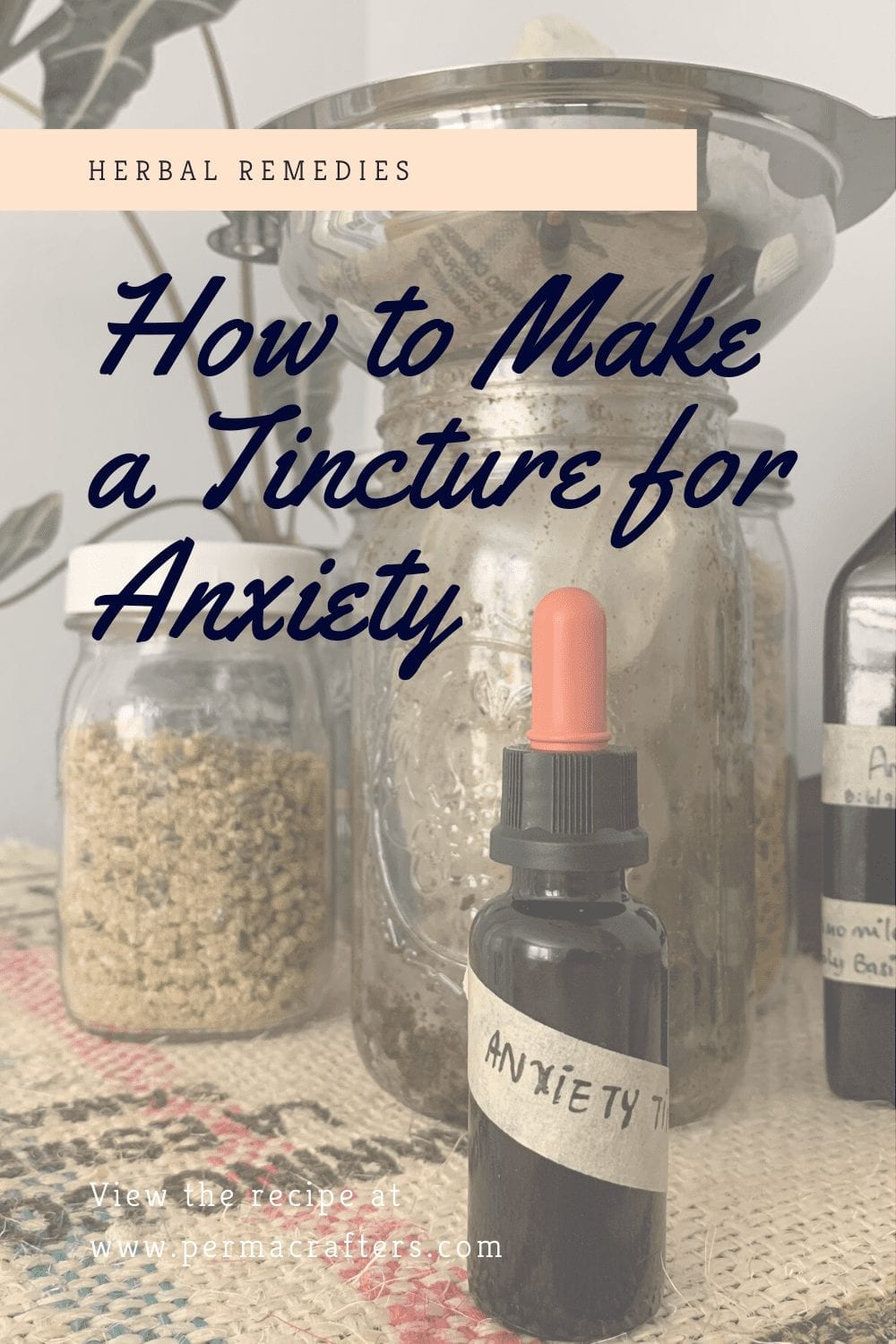
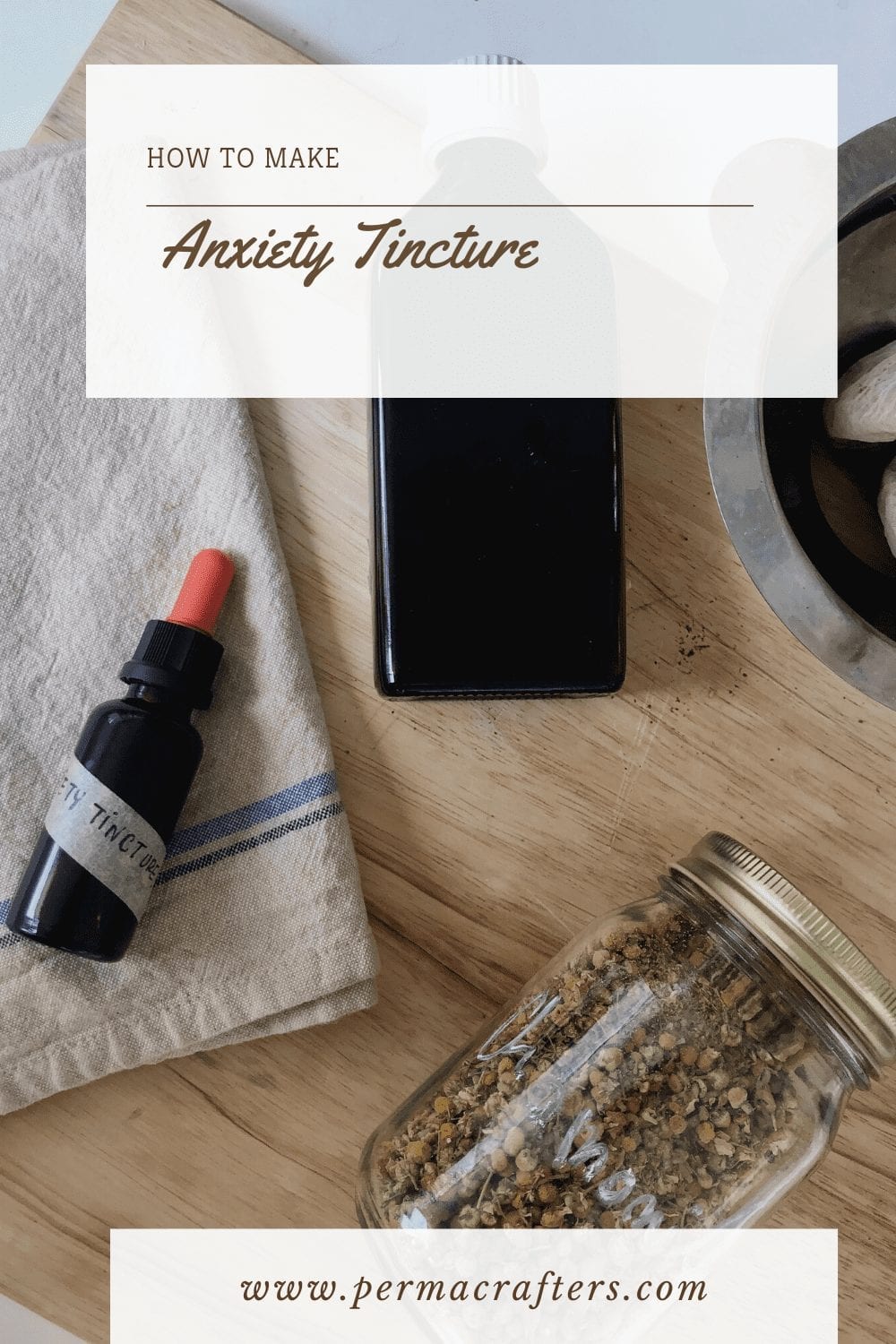
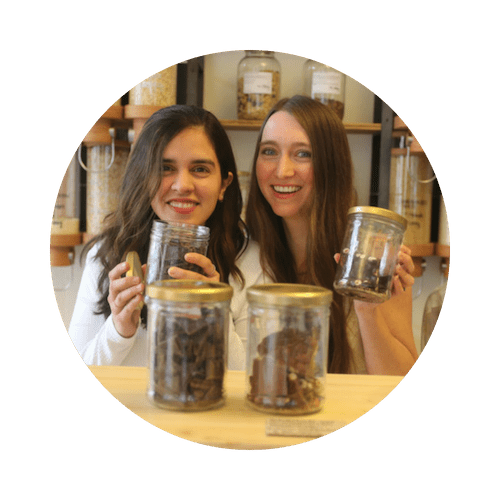
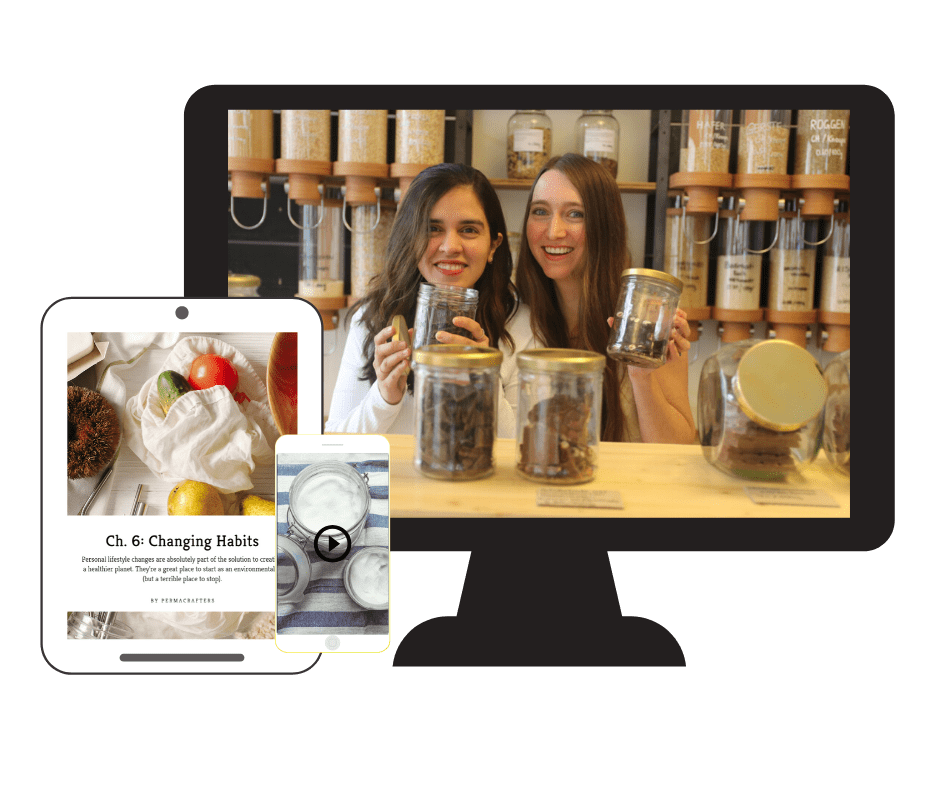
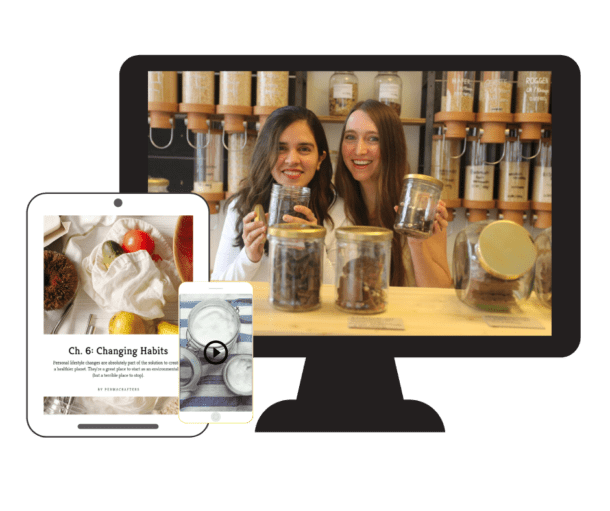
Hey. I use Lemon Balm and Holy Basil to help with my anxiety and depression. I also use other herbs as well. But these 2 herbs are Great! It’s a matter of just getting it into your system and giving some time to make difference. I use green tea with lemon balm, holy basil, mint, hibiscus, oat straw to prepare Iced tea to drink during the day. It’s caffeine free so it’s hydrating as well. At night I use Earl grey, ginger, cardamom, cinnamon, lemon balm, rose, lavender ect. to prepare a hot tea add coconut milk with maca or ashwagada powder It helps with sleep. You can alternate with what you have but do it routinely and experiment a bit. See if you might start feeling better soon.
This is wonderful, Elisabeth! Thanks for sharing your tips.
Aw thanks so much Luke! So glad you enjoyed it!!
What if you can’t have alcohol?
A replacement for alcohol in tinctures is typically apple cider vinegar.
Hi there –
Does this make more than one, 1 oz bottle of tincture? If taking 3 dropperfuls a day, it seems like it might run out fast. Can I make a larger batch to last awhile?
Thank you!!
Hello, what kind of cinnamon are you using? Sticks, bark, chips – surely not ground?
I need to do some research to see if this will work w Lisinopril. My dr won’t know but my pharmacist might or the health food store.
Hello, the cinnamon is Ceylon cinnamon (Cinnamomum verum). No, it is not ground, it’s chopped up finely in chips.
How much of the liquid is needed to pour inti the jar of herbs? Just enough to make sure all of the herbs are covered?
Hi Catherine! Yes, until the herbs are covered with 100-proof vodka.